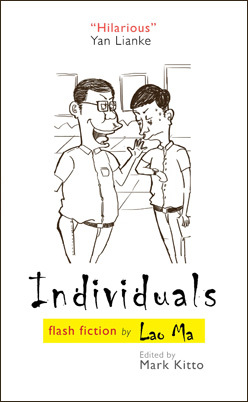A rojak* of
items that caught my eye this week…
Commonwealth Writers Announces
Regional Winners for 2015 Short Story Prize
Commonwealth Writers has announced the regional winners of the 2015 Commonwealth Short Story
Prize. Each regional winner receives GBP2500. The Prize
attracted nearly 4000 entries – a record number. After an initial sift by
a team of international readers, six acclaimed writers – Leila Aboulela,
Fred D’Aguiar, Marina Endicott, Witi Ihimaera, Bina Shah and
Romesh Gunesekera – chose a shortlist of twenty-two stories. From this
shortlist, they selected five winners – one each from Africa, Asia, Canada and
Europe, Caribbean and the Pacific. 2015 Chair Romesh Gunesekera describes
the process: ‘We had a strong shortlist of stories from around the world that
excited the judges and provoked a lively, stimulating set of discussions. The
judges were looking for well-crafted stories that were compelling and original.
The standards were high. We wanted stories that would engage us and make us
rethink our notions of form, language and what mattered. The winning stories
did all of that and more. Thank you, writers.’
Asia Regional Winner: The
Umbrella Man by Siddhartha Gigoo (India). To meet Siddhartha Gigoo click
here.
Brunei: From the Age of Commerce
to the 21st Century by Marie-Sybille de Vienne
Now an energy-rich sultanate, for
centuries an important trading port in the South China Sea, Brunei has taken a
different direction from its Persian Gulf peers. Immigration is restricted, and
Brunei's hydrocarbon wealth is invested conservatively, mostly outside the
country.
Today home to some 393,000
inhabitants and comprising 5,765 square kilometres in area, Brunei first
appears in the historical record at the end of the 10th century. After the
Spanish attack of 1578, Brunei struggled to regain and expand its control on
coastal West Borneo and to remain within the trading networks of the South
China Sea. It later fell under British sway, and a residency was established in
1906, but it took the discovery of oil in Seria in 1929 before colonial power
began to establish the base of a modern state.
Governed by an absolute monarchy,
Bruneians today nevertheless enjoy a high level of social protection and rule
of law. Ranking second (after Singapore) in Southeast Asia in terms of
standards of living, the sultanate is implementing an Islamic penal code for
the first time in its history. Focusing on Brunei's political economy, history
and geography, this book aims to understand the forces behind Brunei's
to-and-fro of tradition and modernisation.
Marie-Sybille de Vienne is a
Professor at the National Institute for Oriental Languages and Civilisations,
INALCO, Paris, Faculty of Southeast Asian Studies.
Brunei is published by NUS Press,
in paperback, at USD32.00
Individuals by Lao Ma, translated
by Li Qisheng and Li Ping
Individuals is a book of
China-style flash fiction by master of short comic fiction and People’s
University professor Lao Ma. As Vice
Chancellor of China’s People’s University (Renmin Daxue), Professor Ma has
championed several of China’s leading writers, including Yan Lianke, Zhang Yueran
and Li Er. Lao Ma is known as the pioneer
of the popular genre of flash fiction in China.
Lao Ma has used his position to
champion an approach to fiction seemingly opposed to that
of many Chinese literary establishment figures, whose works can weigh in at
500,000 Chinese characters or more. Many
professional Chinese writers are paid according to their literary output,
measured by number of words. Western
publishers have sometimes pointed to excessive length, and lack of proper editing,
as a barrier to the translation of more Chinese literary works.
Meanwhile, the average length of
Lao Ma’s stories in Individuals is just 700 words. In his introduction, Lao Ma even dares to
take aim at Nobel laureate Mo Yan, in the course of expounding his own
philosophy of fiction: The 2012 Nobel literature laureate, Chinese writer Mo Yan, says a novel
must be lengthy to qualify as an example of the art form. His major works
usually weigh in at several hundred thousand words. According to Mo, “Any novel
less than 200,000 words lacks dignity. A leopard might be fierce and brave but
he is too short in stature to be the king of the jungle.” By his standards, Mo Yan is a tiger of a
writer. Lao Ma contrasts Mo Yan’s
approach with the short and concise stories of Argentine master Borges: I side with Borges. Length is not a measure of literary value. Dogs
both big and small can bark. Legs long and short can run.
Individuals lampoons frustrated professors, pompous judges and
devious careerists, as Lao Ma skilfully dissects the hypocrisies and ironies of
life in China. Translated by Li Qisheng
and Li Ping. Edited by Mark Kitto (China Cuckoo). Forewords by the author, and by Yan Lianke.
Published by Forty-Six Books, in paperback
and eBook. Priced in local currencies.
Asia Literary Review Issue 27
Asia Literary Review issue 27 is
now available. For more information click here.
*A rojak is a Singaporean salad.
Like Asian Books Blog on Facebook, or follow it on Twitter: @asianbooksblog



